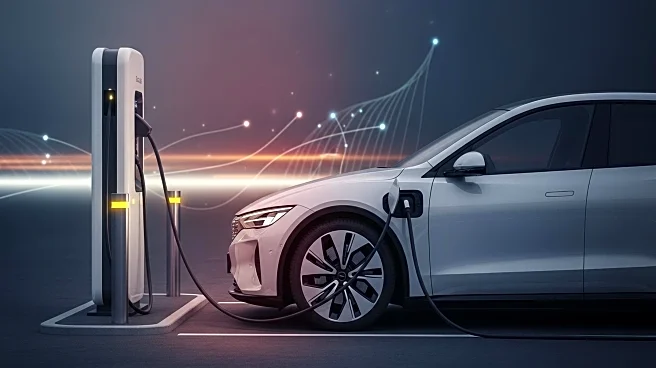What is the story about?
What's Happening?
Kia America experienced a notable increase in electric vehicle (EV) sales in September, despite the expiration of the federal EV tax credit. The company's EV6 and EV9 models saw sales growth of 31.3% and 47.6% respectively during the month. However, the overall sales figures for these models have declined over the first nine months of 2025 compared to the same period in 2024. Specifically, EV6 sales dropped from 15,985 units to 11,077 units, and EV9 sales decreased from 15,970 units to 12,448 units. This decline comes amidst a broader trend of reduced EV sales for the year, with other models like the Nissan LEAF and ARIYA also experiencing significant downturns.
Why It's Important?
The modest growth in Kia's EV sales during September highlights the challenges faced by automakers in maintaining momentum in the EV market, especially as incentives like the federal EV tax credit phase out. The decline in overall sales for the year suggests that consumers may be hesitant to invest in EVs without the financial benefits previously provided by the tax credit. This situation could impact the broader adoption of electric vehicles in the U.S., potentially slowing the transition to more sustainable transportation options. Automakers may need to explore alternative strategies to attract consumers, such as enhancing vehicle features or offering competitive pricing.
What's Next?
As the federal EV tax credit has expired, automakers like Kia may need to adjust their marketing and sales strategies to sustain and grow their EV market share. This could involve increased investment in advertising, partnerships, or incentives to make EVs more appealing to consumers. Additionally, the industry may see increased lobbying efforts to reinstate or introduce new incentives to support EV adoption. The response from consumers and the effectiveness of these strategies will be crucial in determining the future trajectory of EV sales in the U.S.

















